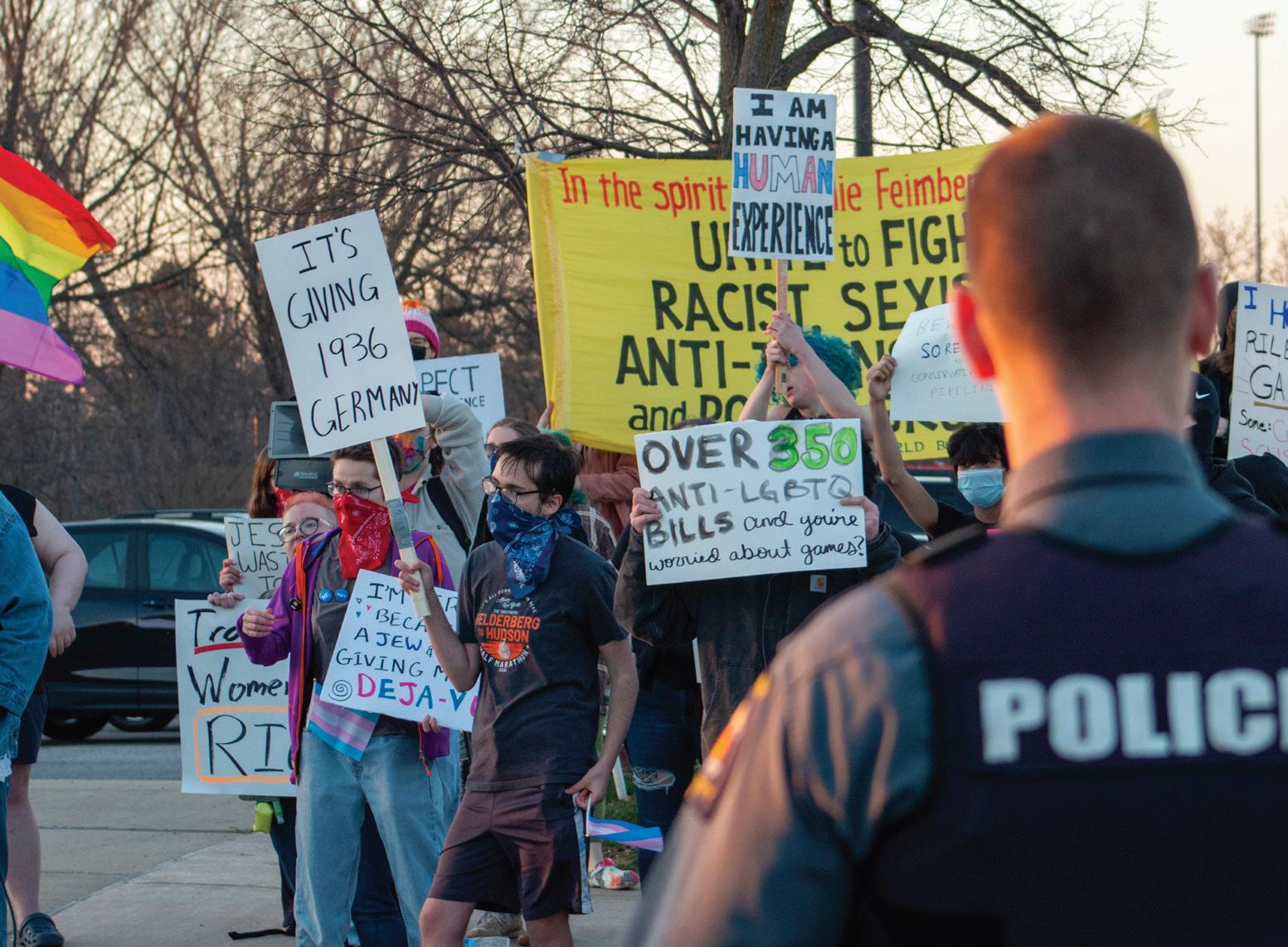
3 minute read
Student-run medical clinic delivers food boxes directly to patients’ homes
The Lighthouse Free Medical Clinic partnered with Fresh Fix to combat food insecurity in Buffalo
KIANA HODGE
Advertisement
EDITOR





NEWS
The Lighthouse Free Medical Clinic, a student-run nonprofit clinic, provides free healthcare to the uninsured and underserved communities in Buffalo, New York.
But they have another mission, too: Every Wednesday, the clinic delivers food boxes filled with “locally sourced” produce directly to some of its patients’ homes.
Through a partnership with Fresh Fix, a local food box delivery company, Lighthouse Clinic is able to provide its patients with access to fresh foods, combating “time insecurity” and “limited access to fresh foods.”
According to Cornell University, approximately 42% of residents on Buffalo’s East Side reported being food insecure, and 45% of those in that category don’t own a vehicle.
“This is something that we as a city take for granted,” Mary Reed, the allied health manager at Lighthouse, said. “We don’t fully understand the struggles of the people that are out there. I live down the street from the grocery store, when in reality, a lot of people don’t.”
When patients go to the clinic for an exam, they are screened for food insecurities. According to Jessica Kruger, a community health professor and clinic volunteer, the patients are often “dealing with multiple challenges,” including access to healthcare in general.
When it first opened in 2001, the clinic was located in the basement of a church, but it now operates out of a pediatric clinic.
The organization is composed of students from the UB Jacobs School of Medicine and Biomedical Sciences, community health workers, physicians and professional students from allied programs.

“I think a lot of people have the misconception that a free clinic is for poor people or for people who don’t work and don’t have insurance and things like that,” Reed said. “The reality is the free clinic services many people from all different socioeconomic statuses. It’s not just giving them [patients] specific services but also connecting them with other resources in the area. ”
The clinic aims to “take a holistic approach to health care” by providing legal counseling, health insurance information and insurance enrollment assistance in addition to medical services.

Lighthouse is the first of its kind in the country to build a medical-legal partnership between medical students and student attorneys.
“We also help people with access to employment which allows them and their families upward mobility,” Kruger said. “Without these services, and this team, it would be really challenging to achieve this.”
The FoodBox Program relies on public donations, with the majority of its funding coming from the clinic’s annual gala, which raised just under $30,000 this year through raffles and an auction.


The FoodBox Program also received funding from the Council on Advocacy and Leadership (COAL) Programming Grant, which provides recognized student organizations with money for new programs, expanding existing programs or producing publications.
Suha Chowdhury contributed reporting to this story.
Email: kiana.hodge@ubspectrum.com on the door,” she said. “They’re like, ‘Campus Living! We know you’re in there!’ We just acted like we weren’t in there, and eventually they just left.”
Another student prefers to drive up by the Lake Lasalle parking lot to spark up in the evening.
“It’s so peaceful,” she said. “Watching [the sunset] while high just enhances the experience. It’s very calming for me, and doing the two things I like together makes it even better.”
Email: kiana.hodge@ubspectrum.com
Email: katie.skoog@ubspectrum.com
Faculty
CONTINUED FROM PAGE 1
The School of Pharmacy and Pharmaceutical Sciences is receiving $660,00 for three new faculty hires.
The School of Law is receiving $250,000 for two faculty hires, and the School of Management is getting $495,000 for two faculty hires.
The Graduate School of Education is getting $295,000 for two new faculty hires, while the School of Public Health and Health Professions will get $450,000 for three new faculty hires. The School of Social Work and School of Nursing are set to receive one new faculty hire each.
The percentage of new tenure-track faculty hires from “underrepresented” backgrounds increased from around 7% in 2017 to around 35% in 2022, Della Contrada said. In 2022, 9.5% of all faculty came from “underrepresented backgrounds,” compared to the 73.6% of faculty who were white, according to the university factbook. 8.9% of all tenuretrack faculty came from underrepresented backgrounds in 2022.
“The university will continue to advocate for diverse pools in all searches as we pursue our commitment to double the number of underrepresented faculty between 2020 and 2025,” Della Contrada said. “To enable their inclusion and success, students should see themselves reflected in their faculty mentors and role models.”
The wider range of perspectives and experiences brought about by increasing faculty will lead to “enhanced research and innovation, more effective teaching and mentorship and wider impacts on our local, national and global communities,” Della Contrada said.
UB’s complete faculty allocation plan can be viewed here.









